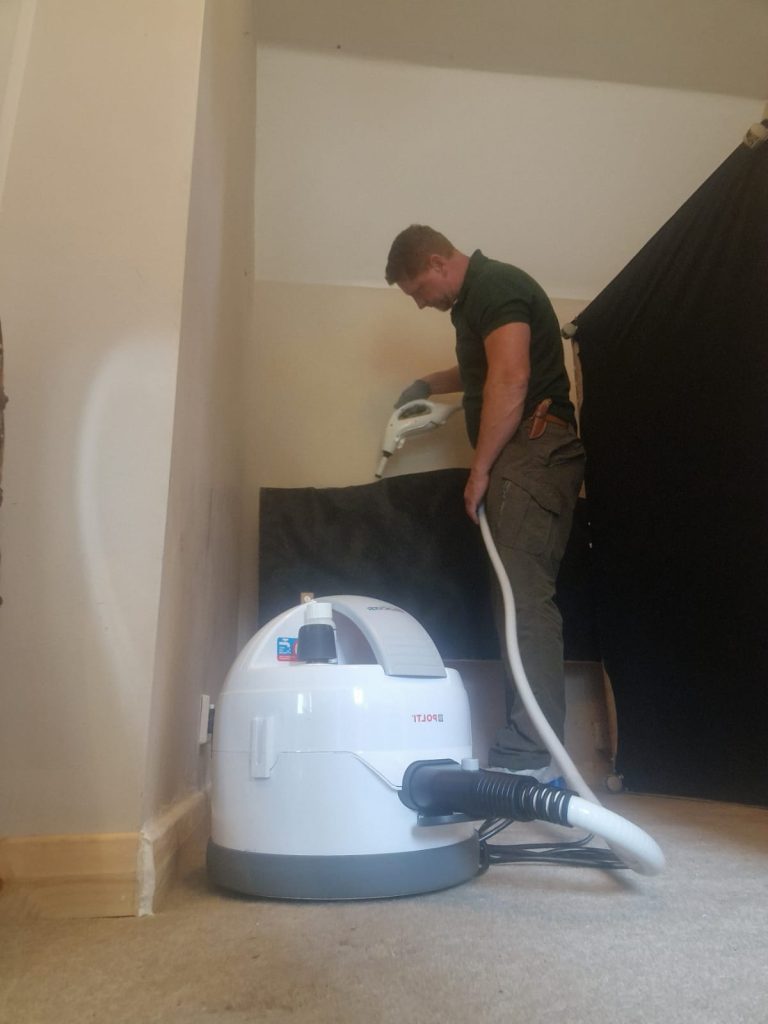How to Manage and Prevent Bed Bugs in Hotels and B&Bs
Bed bugs are a growing concern for the hospitality industry, including hotels, guest houses, and B&Bs. These small, elusive pests can infest even the cleanest establishments, leading to dissatisfied guests, negative reviews, and potential legal action. For hoteliers and property managers, understanding how to effectively manage and prevent bed bugs is critical to maintaining the reputation of their business. Implementing an effective hotel bed bug treatment plan is key to ensuring a pest-free environment for guests.
In this guide, we’ll explore how to identify, manage, and prevent bed bugs in hotels and B&Bs while maintaining the safety and comfort of your guests.
Why Bed Bugs Are a Threat to Hotels and B&Bs
Bed bugs are small, wingless insects that feed on human blood, often while people sleep. They can hide in mattresses, bed frames, headboards, and even behind wallpaper. What makes bed bugs particularly troublesome in the hospitality industry is their ability to spread quickly and easily between rooms and even floors. They are also resistant to many over-the-counter treatments, making professional intervention essential for controlling an infestation.
For hotels and B&Bs, a bed bug infestation can result in:
- Guest Complaints and Negative Reviews: Online reviews are critical for the reputation of any hotel or B&B. Bed bug incidents can lead to poor ratings on platforms like TripAdvisor or Google, affecting future bookings.
- Financial Loss: Infestations can lead to room closures, costly treatments, and lost revenue from unbooked rooms.
- Legal Liabilities: Guests who experience bed bug bites or infestations of their belongings may seek compensation or even legal action.
For these reasons, it’s essential to have an effective hotel bed bug treatment and prevention plan in place.
How to Identify Bed Bugs in Hotels and B&Bs
Early detection of bed bugs can prevent a small issue from turning into a full-blown infestation. Hotel staff, especially housekeeping, should be trained to identify the signs of bed bugs, which include:
Live Bed Bugs
Bed bugs are small, reddish-brown insects about the size of an apple seed. They are usually found in cracks and crevices near sleeping areas, such as mattress seams, bed frames, headboards, and baseboards.
Bed Bug Bites
Guests may report itchy, red bites in a line or cluster, typically on exposed skin areas like arms, necks, and faces. These bites are often the first sign that bed bugs are present.
Faecal Stains
Bed bugs leave behind small, dark spots of excrement, which can be found on bedding, mattresses, and around cracks and crevices in the room.
Shed Skins and Eggs
As bed bugs grow, they shed their exoskeletons. These skins, along with small white eggs or eggshells, may be visible in infested areas.

Hotel Bed Bug Treatment and Management
If bed bugs are detected, immediate action is necessary to prevent the infestation from spreading to other rooms or areas of the hotel. Effective hotel bed bug treatment involves a multi-step process that includes professional pest control services and long-term preventive measures.
Isolate the Affected Room
As soon as bed bugs are confirmed in a room, it should be taken out of service to prevent the pests from spreading to adjacent rooms. Inform staff not to move any bedding, furniture, or belongings from the room, as this could transfer bed bugs elsewhere.
Hire Professional Pest Control
Professional pest control companies are equipped with the knowledge and tools to treat bed bug infestations effectively. Common treatment methods include:
- Heat Treatment: Bed bugs are highly sensitive to heat. During heat treatment, rooms are heated to temperatures above 120°F (49°C), which is lethal to bed bugs in all stages of life. This method is highly effective and chemical-free.
- Vacuuming and Steaming: High-powered vacuums and steamers are often used to remove bed bugs and their eggs and shells from cracks, crevices, and fabric surfaces, providing a safe alternative to traditional insecticides.
- Insecticides: While some pest control providers use insecticides, these chemicals can leave behind harmful residues that may affect indoor air quality and pose health risks, particularly in bedrooms. Tech Country Pest Control focuses on non-toxic solutions to ensure that your hotel or B&B remains safe for children, pets, and guests, without the long-term risks associated with chemical use.
Inspect and Treat Adjacent Rooms
Bed bugs can spread quickly through walls and electrical outlets. It’s essential to inspect and treat rooms adjacent to the infested one, including those above, below, and beside it. This preventive step ensures that the infestation does not spread further.
Replace Infested Mattresses and Furniture
In severe cases, it may be necessary to replace heavily infested mattresses, box springs, or furniture. Any infested items should be sealed in plastic and disposed of properly to avoid spreading the infestation to other areas of the hotel or B&B.
Preventing Bed Bugs in Hotels and B&Bs
The best way to avoid bed bugs in hotels and B&Bs is to implement preventive measures and train staff to identify signs of infestations early. Here are some strategies to keep bed bugs at bay:
1. Regular Inspections
Routine inspections are the first line of defence against bed bug infestations. Housekeeping and maintenance staff should be trained to check for bed bugs during room turnover. High-risk areas such as mattresses, bed frames, and furniture should be inspected regularly.
2. Encasements and Covers
Using bed bug-proof mattress and box spring encasements can help prevent bed bugs from entering or exiting these items. These encasements are specially designed to trap any existing bed bugs inside while preventing new ones from infesting the mattress or box spring.
3. Luggage Management
Guests’ luggage is a common source of bed bug introductions. Hotels and B&Bs should consider providing luggage racks or designated storage areas for guests to keep their belongings off the floor and bed, reducing the risk of bed bugs being brought in from outside.
4. Educate Staff
Staff education is key to preventing and managing bed bug infestations. Train housekeeping, front desk, and maintenance staff to recognise the signs of bed bugs and respond quickly and effectively. A well-informed staff can act as the first line of defence, catching infestations early before they spread.
5. Guest Communication
If a guest reports bed bugs, it’s important to handle the situation professionally and empathetically. Relocate the guest to a different room that has been thoroughly inspected and treated, if necessary. Offer compensation or discounts to address the inconvenience and protect your hotel’s reputation.
Conclusion
Managing and preventing bed bugs in hotels and B&Bs requires a proactive approach, including regular inspections, professional treatments, and staff education. By implementing a comprehensive hotel bed bug treatment plan, you can protect your business from the negative impact of bed bug infestations and provide a safe, comfortable environment for your guests.
Prevention is key, and early detection through regular inspections and guest communication can help reduce the risk of long-term infestations. For any hotel or B&B, maintaining a pest-free environment is crucial to preserving your reputation and ensuring a positive guest experience.
Take Action Now!
If you’re concerned about bed bugs in your hotel or B&B, don’t wait for an infestation to damage your reputation. Contact Tech Country Pest Control today for expert, non-toxic bed bug treatments and preventative solutions tailored to the unique needs of your business. Our professional team will help you keep your property pest-free, ensuring the comfort and safety of your guests.
Contact us now for a consultation and let us protect your property from bed bugs and other pest threats.
